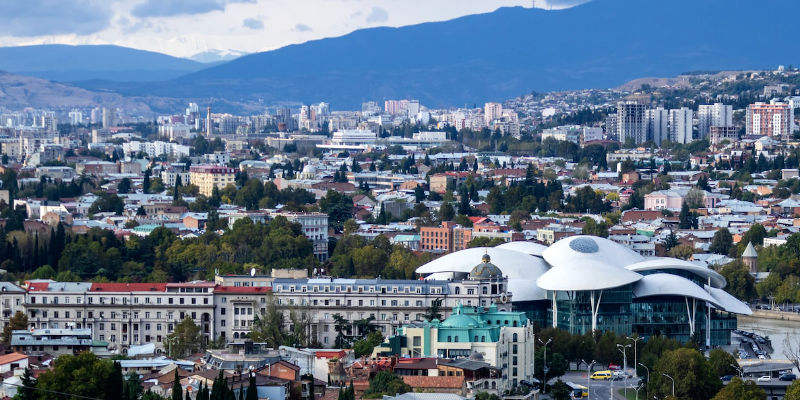Investing in Georgia
Georgia, a nation of 3.7 million people, sits at the cross-roads of Europe, Asia and the Middle East.
One of the first nations to leave the USSR in the early 1990s it is tightly woven into the international community, recognised for its rapid economic growth and free parliamentary elections.
Georgia is at the heart of the Transcaucasian region that reaches from the shores of the Black Sea to the Caspian, rich in hydrocarbons from the Eocene, Cretaceous, Miocene and Oligocene eras.
A highly developed complex of pipelines runs through the Transcaucasus, notably the Baku-Tbilisi-Ceyhan (BTC) Pipeline which moves Azeri crude to the Turkish Mediterranean and the Black Sea, and the South Caucasus Pipeline (SCP), which carries gas from Azerbaijan to Turkey: both pipelines intersect with Block’s fields. Significant new projects include the Trans-Anatolian Pipeline (TANAP), inaugurated in 2019, and the Black Sea underwater electric cable project, signed-off in late 2022, linking Azerbaijani energy resources with Europe through Georgia and Turkey. Major export terminals are located at the Black Sea ports of Supsa and Poti.
Georgia’s growing economy has generated the surging demand for energy to which Block wants to make an ever greater contribution. Since 2012 Georgia has been a net importer of electricity, and the deficit is growing. In 2020 the country imported 99.7% of its natural gas and 97.8% of its oil.
Operations employing the full range of modern exploration and production technologies, including 3D seismic, stimulation and directional and horizontal drilling, are facilitated through a regulatory environment supporting a liberalised energy market and stable framework for production sharing contracts.

Operations employing the full range of modern exploration and production technologies, including 3D seismic, stimulation and directional and horizontal drilling, are facilitated through a regulatory environment supporting a liberalised energy market and stable framework for Production Sharing Contracts.

A consistent policy of liberalisation followed by successive governments has laid the foundations for a diversified non-commodity reliant economy with robust GDP growth.
Economic liberalisation
Georgia has developed liberal, trade-oriented economy bound into the global market through membership of organisations and networks including the World Trade Organisation, the Asian Development Bank, the Council of Europe, the European Bank for Reconstruction and Development, and the Organisation for Security and Co-operation in Europe.
Free trade agreements have been negotiated with the EU, China, Hong Kong, Turkey, the US, Canada, Japan, Norway and Switzerland, opening access to a duty-free market of 2.8 billion customers.
A consistent policy of liberalisation followed by successive governments has laid the foundations for a diversified non-commodity reliant economy with robust GDP growth and per capita income converging toward EU levels. The 2014 Liberty Act was particularly significant reform, formalising a credible fiscal framework capping the country’s fiscal deficit at 3pc and its public debt at 60pc of GDP, earning Georgia the credibility that has facilitated strong foreign direct investment averaging 8.5pc of GDP over the last 10 years.
Fitch Ratings has upgraded Georgia’s sovereign credit rating outlook from stable to positive, attributing the country’s revised status to ‘exceptionally strong’ GDP and rigorous fiscal and monetary discipline. Georgia recorded economic growth of 10.5% and 10.1% in 2021 and 2022, against the grain of the global economic slowdown.
Georgia performs strongly in a range of international indices. The country ranked seventh of 190 nations in the World Bank’s 2020 ease of business index, was first in the 2021 Open Budget Survey published by the International Budget Partnership, and is 17th in the latest Transparency in the Time of War index compiled by the European Research Centre for Anti Corruption and State-Building. The country’s ongoing liberalisation programme earned it 15th place in the Fraser Institute’s 2022 Economic Freedom Annual Report, and 21st in last year’s Heritage Foundation Index of Economic Freedom.